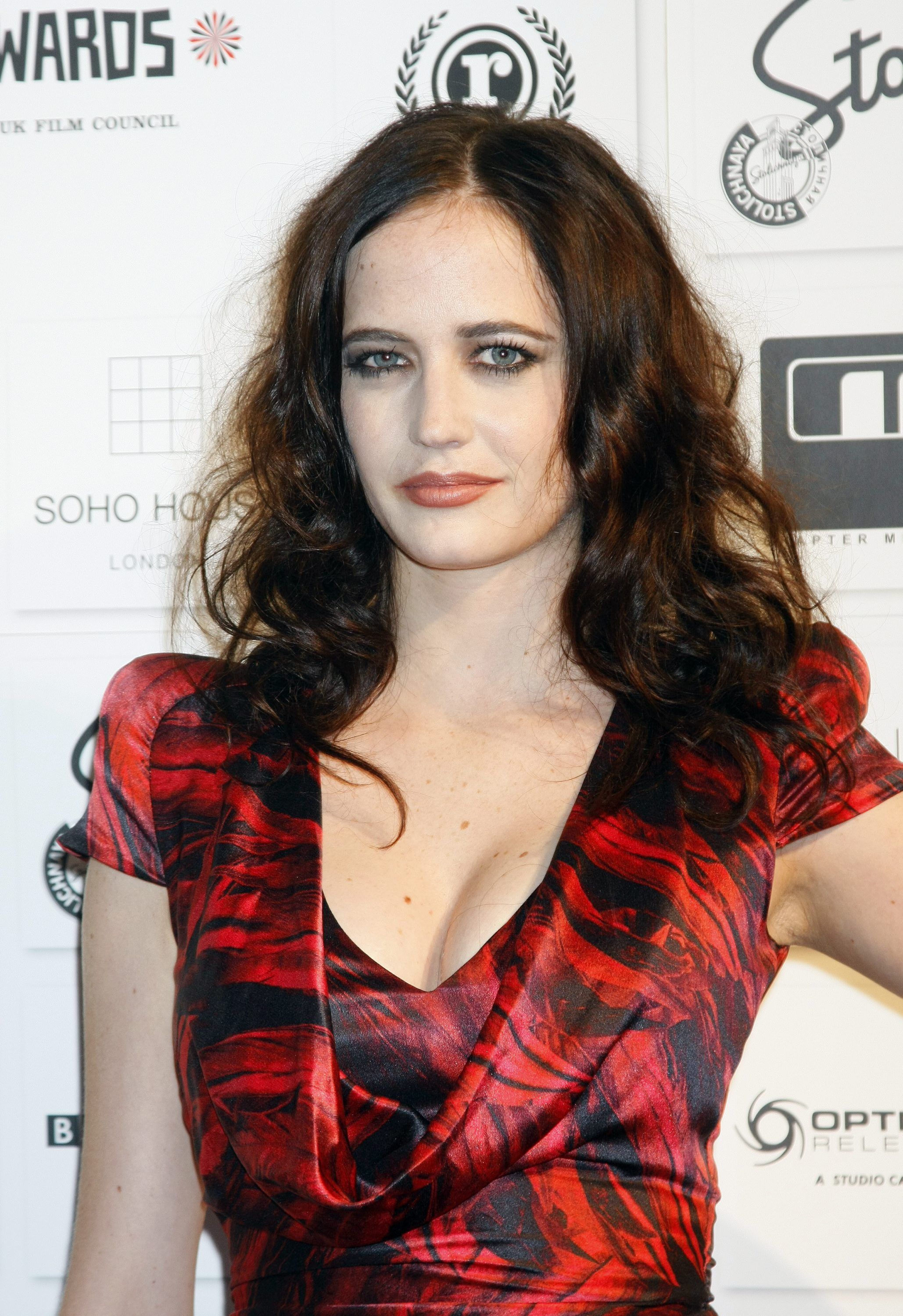EVA: Unraveling The Anime's Depths, Beyond 'Naked Training Day' Misconceptions
It's quite common for search queries to sometimes lead us down unexpected paths, and if you've landed here looking for "eva mendes naked training day," you might be in for a slight, yet fascinating, redirection. We understand that specific phrases can spark curiosity, and the internet, well, it’s a vast place with all sorts of connections. However, the information we have at hand, the very core of what we're going to explore today, actually points us toward a completely different "EVA." It's a world brimming with complex characters, deep philosophical questions, and truly memorable giant machines.
So, let's clarify things a little. Our discussion today centers on the critically acclaimed Japanese anime series, *Neon Genesis Evangelion*, often simply called "EVA" by its devoted fans. This show, you see, has left an incredible mark on popular culture, influencing countless stories and artists since its debut. It’s a universe that, frankly, explores the human condition in ways few others have dared to, touching on themes that resonate deeply with many people, even years after its initial run. It's quite a ride, honestly.
Prepare to take a look at the core ideas, the creative journey, and the lasting impact of *Neon Genesis Evangelion*. We'll talk about its unique lore, the evolution of its story across different versions, and the profound messages it delivers. This is about understanding the show's true essence, and perhaps, discovering why it continues to captivate audiences around the globe. It's a story that, in some respects, truly gets under your skin.
- Virgo Sun Gemini Ascendant
- Christina Aguilera Piercings
- Kylie Gold
- How Long Did Cain Live
- Shalom Harlow Relationship
Table of Contents
- The Creator: Hideaki Anno
- What is EVA in the Anime World?
- The Biblical and Religious Undertones
- A Story of Human Connection and Psychology
- The Evolution of EVA Through Its Versions
- The Impact of Production and Real-World Events
- Looking Ahead with EVA
- Frequently Asked Questions About EVA
The Creator: Hideaki Anno
To truly get a handle on *Neon Genesis Evangelion*, you really need to understand a bit about its creator, Hideaki Anno. He's the mind behind this whole universe, and his personal experiences and perspectives are, quite frankly, woven into the very fabric of the show. Anno, you see, has always been a big fan of tokusatsu (special effects cinema) and science fiction, a typical enthusiast who, in a way, remained a child at heart, deeply immersed in his own imaginative worlds. His work, pretty much, mirrors his inner state, and the core of that state is all about "growing up" or, perhaps more accurately, the challenges that come with it. It’s a very personal touch, honestly.
Personal Details & Bio Data: Hideaki Anno
| Full Name | Hideaki Anno |
| Born | May 22, 1960 |
| Nationality | Japanese |
| Known For | Director, Animator, Screenwriter, Producer |
| Key Works | *Neon Genesis Evangelion*, *Gunbuster*, *Nadia: The Secret of Blue Water*, *Shin Godzilla*, *Shin Ultraman*, *Shin Kamen Rider* |
| Themes Often Explored | Psychological trauma, human connection, depression, existentialism, coming of age, societal expectations |
What is EVA in the Anime World?
In the world of *Neon Genesis Evangelion*, the "EVA" refers to the giant, humanoid bio-machines piloted by young teenagers. These aren't, you know, just your typical robots. They're actually more like living entities, incredibly powerful, but also rather wild and dangerous. The impressive armored suits they wear? Those aren't just for protection, it turns out. They actually serve as "restraint devices," designed to hold back the immense, almost untamed, strength of the EVA itself. It's a rather fascinating concept, honestly, suggesting that the power they wield is so vast, it needs to be constantly managed.
Because of this, you often see that a single EVA unit, even with all its might, typically can't defeat an Angel (the monstrous adversaries) on its own. It often takes multiple units, working together, to stand a real chance. This really drives home the sheer scale of the threats and the desperate nature of the battles. There's a moment, for example, where EVA Unit-01, a truly pivotal machine, consumes the S2 Engine of the Fourteenth Angel. This act, you see, grants it the ability of self-regeneration, making it incredibly resilient. It's a pretty big deal in the story, transforming its capabilities quite a bit.
- Taylor Stewart Wedding
- Prince Gifts
- Matt Tobben Firefighter
- Love Me Ring
- Jamey Johnson Returns With Midnight Gasoline After A 14 Year Hiatus
We also hear about an instance where an Angel, after being initially repelled by an EVA and hit with an N2 mine, took nearly a week to recover. This shows just how tough these adversaries are, and the toll the fights take. Eventually, though, through a coordinated "62-second battle" where Unit-01 and Unit-02 worked in perfect sync, that particular Seventh Angel was finally eliminated. It really highlights the importance of strategy and timing, too it's almost a dance of destruction, in a way.
The Biblical and Religious Undertones
The series, *Neon Genesis Evangelion*, is absolutely packed with references that seem to pull from religious texts, particularly the Bible. For instance, the very name "EVA" itself, you might wonder, is that like "Eve" from the Bible? Well, in some respects, yes, it certainly seems to be a nod to that. The show, frankly, incorporates a lot of what might seem like "gibberish" religious concepts, but they're often thrown in there just because they look cool or sound impactful, not always for strict theological accuracy. It's a bit chaotic, but it works for the atmosphere.
The term "Gospel" is another concept directly from the Bible, and it shows up in the series' Japanese title, *Shin Seiki Evangelion*, which translates to *New Century Gospel*. At the heart of the series' lore are the "Dead Sea Scrolls." In the story, these ancient texts are presented as newly discovered "Gospel books," containing prophecies and instructions that drive much of the plot. They're pretty central to everything that happens, shaping the characters' destinies and the world's fate. It’s almost like a twisted prophecy, you know?
These religious elements, while sometimes used for their aesthetic appeal, actually contribute to the show's deeper themes. They add layers of mystery and a sense of predetermined doom, making the conflicts feel even more profound. It's not just about fighting monsters; it's about confronting destiny, understanding humanity's place in the universe, and grappling with ancient secrets. The way they weave these ideas in is, frankly, quite clever, even if it's a bit bewildering at first glance.
A Story of Human Connection and Psychology
At its very core, *Neon Genesis Evangelion* isn't really about people fighting monsters, despite what the giant robots might suggest. No, it's, in a way, a much more intimate story about human relationships and the struggles we face connecting with one another. The giant mech genre was just a vehicle, a popular trend at the time, used to carry these much deeper ideas. The show, you see, blends together all sorts of psychological concepts, philosophical ponderings, and religious elements, often presented in a very stream-of-consciousness style. This is, basically, why the work has resonated so deeply with so many people. It really gets into your head, honestly.
The psychological aspects are particularly striking. The characters, especially the main protagonist Shinji Ikari, are incredibly complex and often deeply troubled. Their internal struggles, anxieties, and difficulties in forming bonds are, quite frankly, a central focus. The series explores concepts like the Hedgehog's Dilemma, where individuals, like hedgehogs, want closeness but also fear the pain of getting too near. This is, arguably, a powerful metaphor for the challenges of human intimacy. It's a very relatable struggle, you know, that feeling of wanting to connect but also being scared of getting hurt.
The narrative often delves into the characters' minds, showing their fears, their past traumas, and their desperate longing for acceptance. It's a rather raw and honest portrayal of the human psyche, making the characters feel incredibly real, despite the fantastical setting. The show suggests that the biggest battles aren't always fought with giant machines, but within ourselves and in our attempts to truly understand and connect with others. It’s a pretty profound message, to be honest, and one that sticks with you.
The Evolution of EVA Through Its Versions
The story of *Neon Genesis Evangelion* has, frankly, seen a few different iterations over the years, each offering a slightly different flavor or conclusion. After the original TV series, the film *The End of Evangelion* (EOE) came out, which many consider to be the second, perhaps more definitive, version of the story's conclusion. With EOE's release, the main narrative, in a way, paused for a bit. It was, you know, a pretty intense ending that left a lot for fans to chew on.
Then, around 2003, the TV version received some refinements. This "remastered" edition mainly aimed to make the pacing of the episodes after number 20 feel a bit more cohesive and less rushed, as the original production faced budget and time constraints towards the end. This version, sometimes called the "renewal" or "director's cut," made the latter part of the story flow a bit more smoothly. It’s, in some respects, a subtle but noticeable change for those who really pay attention.
Later, the "EVA-FANS 2005 Remastered Version" started circulating online. Now, it's important to note that this wasn't an official release from the creators. Instead, it was a fan-made project by the "EVA-FANS" subtitle group, who took it upon themselves to re-edit and refine the series in 2005. It's, basically, a testament to the dedication of the fan community, but it's not canon, you know? Then came the *Rebuild of Evangelion* film series, starting in 2007. These new theatrical versions, as they're called, essentially offer a fresh take on the story, almost a complete reimagining for a new generation, while still honoring the original themes and characters. They're pretty different, yet familiar.
The final film in this series, *Evangelion: 3.0+1.0 Thrice Upon a Time* (often just called *Thrice Upon a Time* or *End*), marked a significant moment. When Shinji Ikari, the main character, says "Goodbye, all Evangelions" in that film, it wasn't just a farewell to an anime. It was, in a way, a goodbye to an entire era, a parting with that part of ourselves that, since 1995, might have been hiding inside an "EVA cockpit," afraid to face the world. It’s a very poignant moment, honestly, symbolizing a kind of maturation for both the characters and the audience. This new theatrical version, many feel, represents director Anno's own journey of reconciliation, moving from a rather bleak, depressing tone to something more hopeful and healing. It’s quite a shift, you know, from the original series.
The Impact of Production and Real-World Events
Understanding *Neon Genesis Evangelion* also means looking at its creation process and the real-world events that, perhaps, shaped it. There's, frankly, very little official information about how the show first got picked up by TV stations. Based on the limited details available, some speculate that its broadcast in Japan might have been almost accidental. One idea is that it was a "no-preference" choice, meaning they just aired whatever was available from Japan at the time. Another thought is that *EVA* was simply popular at that moment, so it seemed like a good idea to bring it over. It’s a bit of a mystery, honestly, how it first made its way to a wider audience.
The show's production, especially the original 1995 TV series, was also heavily influenced by director Hideaki Anno's personal experiences and the financial constraints faced during its making. As many discussions (or, you know, "rehashing old news") have pointed out over the years, analyzing the original TV series really can't be done without considering Anno's personal journey and the budget issues that plagued the later stages of production. These factors, basically, had a profound impact on the story's direction and its eventual ending. It’s pretty clear, honestly, that the struggles behind the scenes bled into the narrative itself.
On another note, *EVA* was actually in production when the infamous Aum Shinrikyo sarin gas attack happened in Japan. According to Japanese cultural critic Hiroki Azuma, Anno, upon hearing about the police raid on the Aum Shinrikyo cult, made changes to some parts of the plot. This was, apparently, out of concern for censorship and the general political atmosphere at the time. It’s a pretty striking example of how real-world events can directly influence creative works, sometimes forcing artists to adapt their vision. This shows how, in a way, art can reflect the anxieties of its time.
Looking Ahead with EVA
So, we've explored the deep layers of *Neon Genesis Evangelion*, from its unique take on giant mechs as "restraint devices" to its rich tapestry of psychological and religious themes. We've seen how director Hideaki Anno's personal journey, and even the practical realities of anime production, really shaped this iconic series. It's a show that, honestly, transcends its genre, offering a truly profound look at what it means to be human and to connect with others. The way it tackles complex emotions and philosophical questions is, frankly, quite extraordinary.
The various versions of *EVA*, from the original TV series to the *Rebuild* films, each offer a slightly different perspective, yet they all contribute to the overarching narrative of growth and understanding. It's a testament to the show's enduring appeal that it continues to be discussed, analyzed, and re-evaluated by new generations of fans. If you're curious to learn more about the profound ideas explored within this series, you can definitely find more discussions about its lore and themes. Learn more about Evangelion's world on our site, and delve deeper into its philosophical concepts by visiting this page. It's a universe that, you know, keeps on giving.
Frequently Asked Questions About EVA
Is "EVA" related to the biblical "Eve"?
Yes, arguably, the name "EVA" in *Neon Genesis Evangelion* is a direct reference to "Eve" from the Bible. The series incorporates many biblical and religious concepts, like the "Dead Sea Scrolls" and the term "Gospel," weaving them into its complex mythology to add layers of meaning and prophecy. It's a very intentional choice, you know, to give the series a deeper, almost ancient, feel.
Why are the EVA units armored if they're living beings?
The armor on the EVA units isn't just for protection; it's actually designed as a "restraint device." These powerful bio-machines are incredibly strong, but their immense power needs to be contained and controlled. The armor, basically, keeps that raw strength in check, making them safer, or at least more manageable, for their pilots. It's a rather clever way to explain their appearance, honestly.
Did real-world events influence the making of EVA?
Absolutely, real-world events, particularly the Aum Shinrikyo cult incident in Japan, did influence the series. Director Hideaki Anno reportedly made some plot adjustments out of concern for censorship and the prevailing political climate after the cult was raided. This shows how current events can, you know, sometimes shape the creative direction of a story quite a bit.
- Peter Hinwood Naked
- Juliet Columbus
- Madonna In Versace
- Summer Richardson Porn
- Kelly Clarkson Coat Rockefeller Center

Eva Elfie Net Worth: A Deep Dive Into Her Success And Earnings

File:Eva Mendes 2009.jpg - Wikimedia Commons

Eva Green Eva Green Penny Dreadful, Celebs, Ava Green, Actress Eva